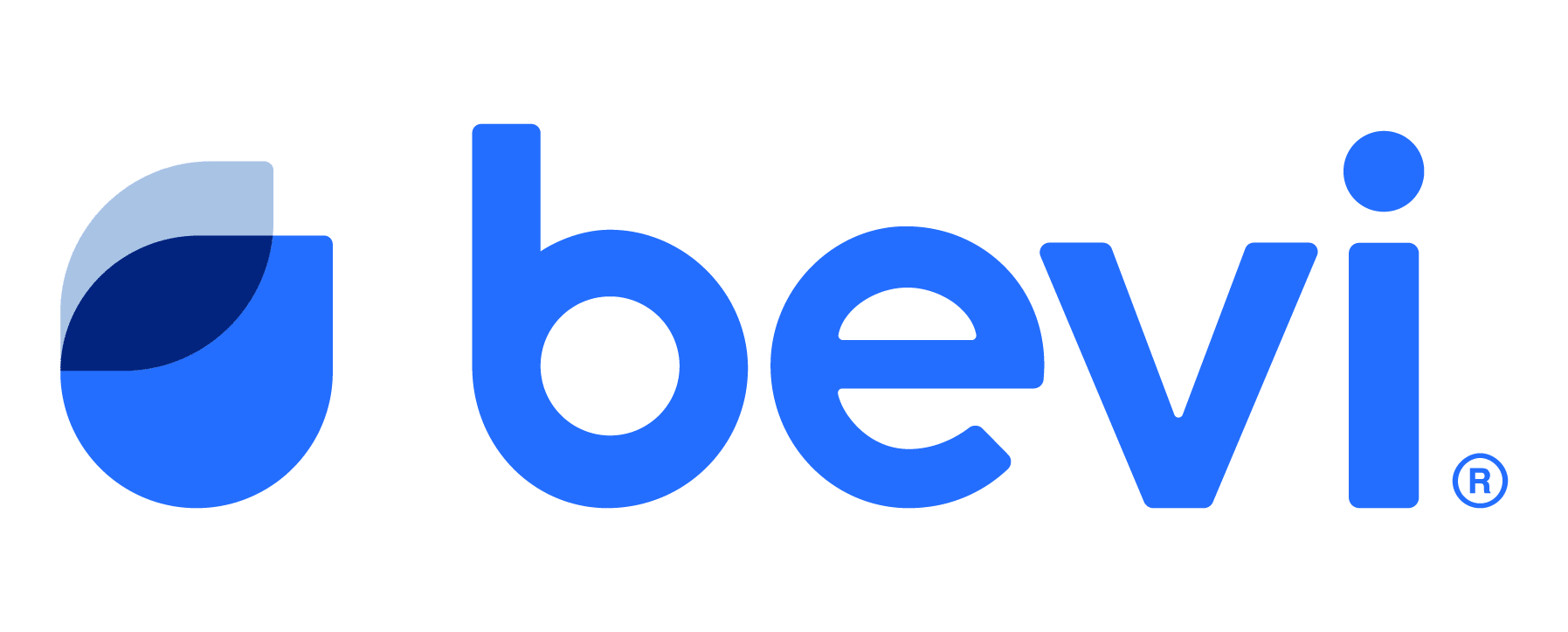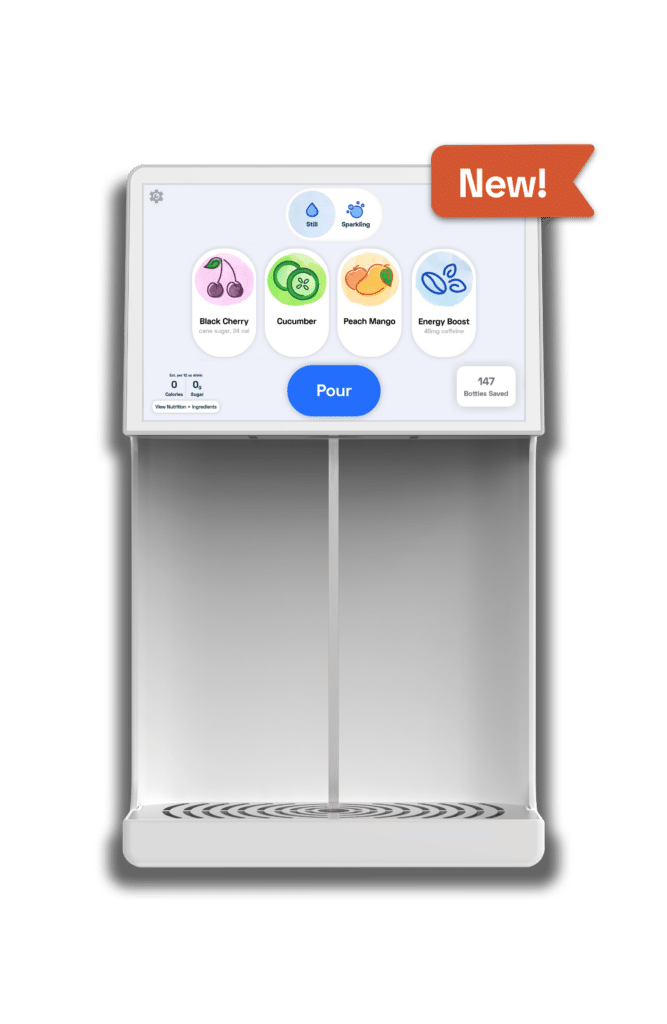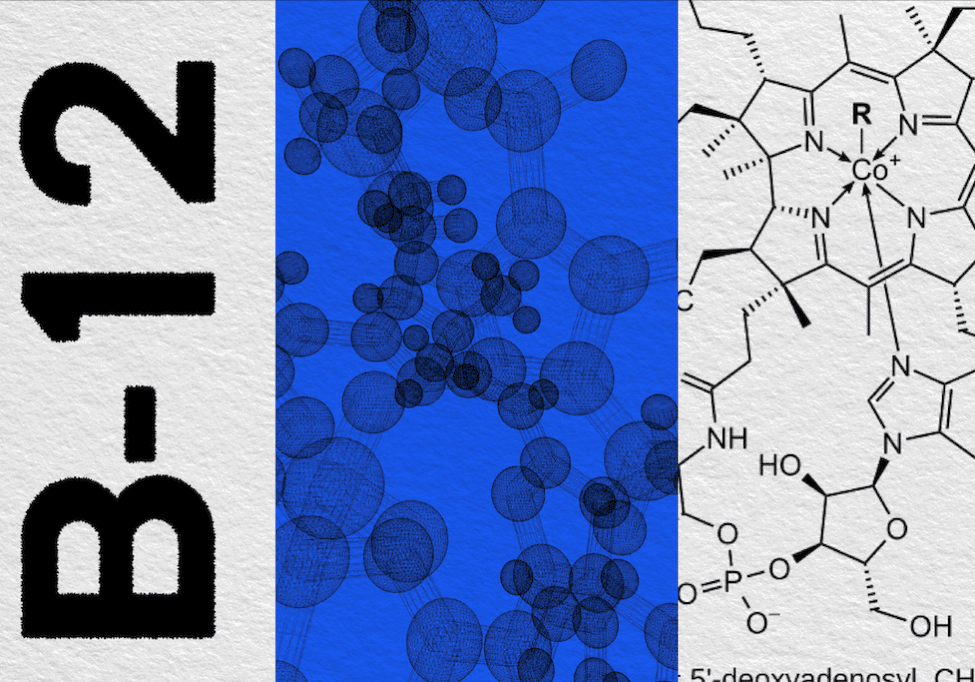Ever had one of those days where your brain is firing on all cylinders, your to-do list is shrinking, and you feel like you could take on the world?
We usually credit a solid night’s sleep or that first cup of coffee. But behind the scenes, vitamin B12 is doing the neurological and biochemical work that helps make those productive, joyful days possible.
This powerhouse nutrient helps turn the food you eat into steady, usable energy while keeping your nerves firing and your red blood cells healthy. Yet, despite its importance, many people don’t know if they’re getting enough vitamin B12 in their diets.
With more of us leaning into functional nutrition and smarter wellness choices, B12 has earned a spotlight. In this guide, we’ll cut through the noise, unpack the science, and share what’s proven (and what’s not) about this vitamin’s role in focus, mood, and long-term health. So you can make confident, informed choices for your body.
What is vitamin B12?
If your body were a well-oiled machine, vitamin B12 would be the behind-the-scenes maintenance crew. Also known as cobalamin, it’s a water-soluble B-vitamin your body needs to keep nerve cells insulated and healthy, support DNA production, and build the red blood cells tasked with ferrying oxygen throughout the body, and support overall brain health.
You can get B12 through animal-based foods like fish, dairy, eggs, and meat, or through fortified products if you follow a mostly plant-based diet. Some diets lean on supplements when food sources or absorption are not enough.
Under the surface, B12 operates in two active forms, or “coenzymes:”
- Methylcobalamin powers an enzyme called methionine synthase, which recycles homocysteine into methionine. This is a key step in forming molecules that drive DNA synthesis, methylation (a kind of cellular “switch flipping”), and nerve insulation (myelin).
- Adenosylcobalamin supports methylmalonyl‑CoA mutase in mitochondria, helping metabolize certain fats and amino acids into energy (and preventing harmful byproducts).
The benefits of getting enough vitamin B12
If your body were a well-oiled machine, vitamin B12 would be the behind-the-scenes maintenance crew. Also known as cobalamin, it’s a water-soluble B vitamin your body needs to keep nerve cells insulated and healthy, support DNA production, and build the red blood cells tasked with ferrying oxygen throughout the body, and support overall brain health.
You can get B12 through animal-based foods like fish, dairy, eggs, and meat, or through fortified products if you follow a mostly plant-based diet. Some diets lean on supplements when food sources or absorption are not enough.Under the surface, B12 operates in two active forms, or coenzymes:
- Methylcobalamin powers an enzyme called methionine synthase, which recycles homocysteine into methionine. This is a key step in forming molecules that drive DNA synthesis, methylation (a kind of cellular “switch flipping”), and nerve insulation (myelin).
- Adenosylcobalamin supports methylmalonyl‑CoA mutase in mitochondria, helping metabolize certain fats and amino acids into energy (and preventing harmful byproducts).
The benefits of getting enough vitamin B12
When your B12 levels are healthy, your body’s fundamental systems, from energy conversion to oxygen delivery, work more reliably. That often translates into steady energy throughout the day and a clearer mental groove, not because B12 is a quick fix, but because it supports your core biology.
Mood and emotional resilience
Research has found that people low in vitamin B12 are more likely to experience mood changes, including symptoms of depression. This may be because B12 helps regulate certain brain chemicals and keeps levels of homocysteine, a substance linked with mood problems, in check. For someone who’s low, getting enough B12 can significantly boost mood, alongside other treatments. For someone who already has healthy levels, extra B12 probably won’t lift mood on its own
Fatigue and physical endurance
Vitamin B12 plays a key role in making healthy red blood cells, which carry oxygen through your body. Without enough of it, you can feel unusually tired or weak. Meeting your needs helps maintain natural energy and stamina, supporting everything from daily tasks to workouts. But if your levels are already fine, large amounts of B12 won’t give the same “boost” that caffeine or a workout might.
Cognitive function and mental clarity
Vitamin B12 helps protect your brain by supporting nerve health and preventing a buildup of certain byproducts, like homocysteine and methylmalonic acid, that can interfere with brain function when levels get too high. In people who are deficient, restoring B12 levels can improve clarity and focus. If your levels are already healthy, extra amounts aren’t likely to sharpen thinking further, but maintaining healthy levels is crucial for preventing cognitive decline and supporting overall mental clarity and nerve function, as even sub-optimal levels can impact cognition.
The big takeaway is this: vitamin B12 shines most when you’re meeting your needs or restoring normal levels; not as a performance booster when you’re already replete. It’s widely safe at typical supplemental doses and has an important role in an evidence-based wellness plan focused on long-term energy, clarity, and health.
Understanding vitamin B12 deficiency
Think of vitamin B12 as your body’s maintenance manager. When stores run low, essential systems, especially your nerves and red blood cells, start to feel the strain.
At first, the signs can be easy to miss: maybe a little more fatigue than usual, tingling in your hands or feet, or feeling a bit off-balance. As the shortage grows, you might notice pale skin, low energy, or changes in how quickly you process information.
Some people are more likely to experience these changes than others, simply because of how they eat, age, or absorb nutrients.
Who’s more likely to run low?
Some people have a harder time getting or absorbing enough B12. This includes:
- Vegans and many vegetarians, since most natural sources of B12 are animal-based.
- Adults over 60, as absorption naturally decreases with age. In older adults, deficiency can show up as mild memory or focus issues rather than the classic signs of anemia.
- People with digestive conditions or surgeries that affect the stomach or small intestine.
- Those on certain medications long-term, like metformin for diabetes or acid-reducing drugs (PPIs and H2 blockers).
- Individuals with pernicious anemia, an autoimmune condition that prevents the body from absorbing B12 properly.
The good news
When deficiency is confirmed and treated, whether through diet changes, oral supplements, or injections, many people notice real improvements in energy, mental clarity, and overall well-being. Studies have documented meaningful gains in alertness and cognitive function once B12 levels are restored in those who were low.
Don’t guess—test
Because the symptoms can overlap with other health issues, the only way to know for sure is with proper testing. Healthcare providers often check serum B12 alongside methylmalonic acid (MMA) and homocysteine for a fuller picture, then tailor a plan to help you get back into the healthy range.
Vitamin B12 and cognitive focus: what the research says
When B12 levels drop too low, bringing them back up can make a real difference for the brain. In people with confirmed deficiency and cognitive symptoms, supplementation has been shown to improve skills like memory and problem-solving, and many experts recommend testing B12 in anyone with unexplained cognitive changes. That part is clear.
Here’s where it gets more nuanced: If your vitamin B12 is already in the healthy range, taking extra isn’t likely to sharpen focus, boost alertness, or improve working memory. Large-scale reviews show that while B-vitamin combinations (including B12) can lower homocysteine, this doesn’t consistently translate into better test scores for otherwise well-nourished adults.Observational research does show that low B12 is associated with smaller brain structures, like the hippocampus, and with lower cognitive performance. This has led some researchers to explore whether maintaining optimal B12 might help slow decline in people at higher risk. For most healthy adults, though, the best strategy is straightforward: aim to meet your needs through food or a standard supplement if necessary, and let lab results guide any higher-dose treatment rather than expecting extra B12 to act like a mental “booster.”
Sourcing vitamin B12: food, supplements, and how much you really need
Food is the first and most reliable place to get your B12. The richest natural sources are animal-based; think clams, trout, salmon, beef, dairy, and eggs. If you follow a vegan or mostly plant-based diet, fortified options like breakfast cereals, nutritional yeast, and plant milks can help you meet your needs.
Supplements are useful if your diet is limited, your absorption isn’t optimal, or you have a confirmed deficiency. For most people, cyanocobalamin is an affordable, well-studied choice, while methylcobalamin is another widely available form. Typical supplemental amounts range from 500 to 1000 micrograms daily, with healthcare providers often prescribing higher short-term doses for those with deficiency or absorption challenges.
How much b12 per day?
Nearly 1 in 5 adults over 60 have low or borderline vitamin B12 status, so it’s worth paying attention to your intake early, not only after symptoms appear. For most healthy adults, the recommended dietary allowance (RDA) is 2.4 micrograms (µg) per day. Needs increase during pregnancy (2.6 µg) and breastfeeding (2.8 µg), or if certain health conditions or medications interfere with absorption. While supplement doses may look much higher than the RDA, that’s because your body absorbs only a fraction at a time.
There’s no established upper limit for B12 since it’s water-soluble and your body can excrete what it doesn’t use, making typical over-the-counter doses considered safe. Still, the right plan depends on your individual health history and medications.
If you’re unsure about your levels or fall into a higher-risk group, the smartest move is to get tested and work with a clinician to tailor your form and dose, rather than guessing.
B12, brainpower, and bringing your best self to work
Vitamin B12 may be a small nutrient, but it plays a big role in how energized, clear-headed, and balanced you feel day to day. It supports how you think, feel, and function. Making sure you’re getting enough, whether from food, fortified options, or supplements, supports the systems that keep your brain sharp and your body running smoothly.
For those looking to weave more steady focus into their daily routine, Bevi’s Focus Blend combines B12, a low dose of natural caffeine, and calming magnesium to deliver lasting focus without feeling wired.So you can bring your best self to work, the classroom, or wherever the day takes you.
Smart nutrition and smart hydration can be the simplest way to power your productivity.





